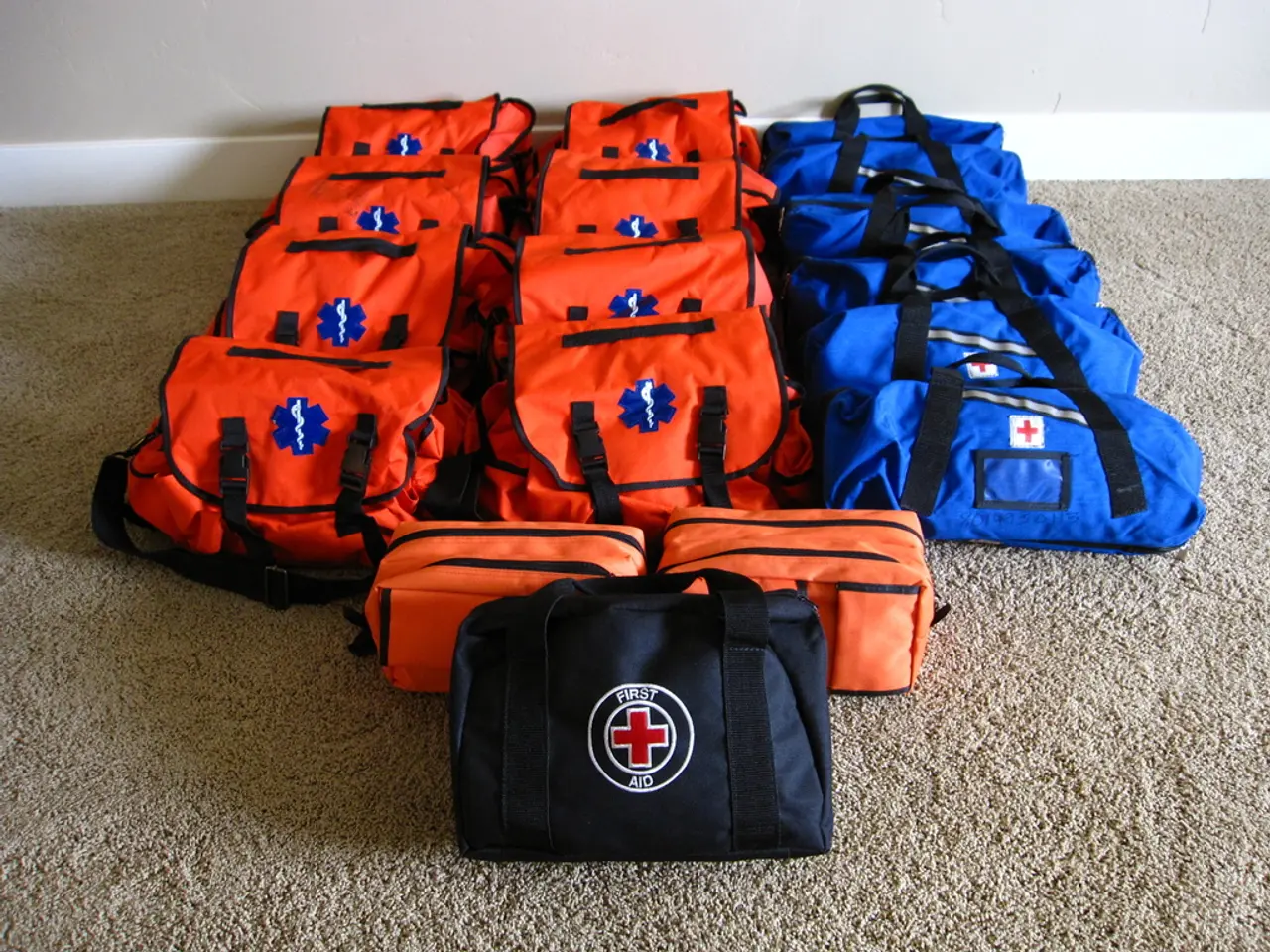Crisis Preparedness Lapse Warned by the Red Cross
The German Red Cross (GRC) is urging for increased and efficient funding focused on anticipatory humanitarian aid, aiming to better protect populations from disasters and climate-related crises. The organisation is advocating for a shift from reactive to proactive measures, utilising climate and weather data to anticipate disasters and allocate funds automatically when risk thresholds are met, ensuring faster and more effective response.
The GRC has identified several key areas in need of improvement and funding. These include the establishment and maintenance of anticipatory action systems, such as the "Anticipation Hub," to promote expertise, knowledge exchange, and risk-financing innovations that facilitate early humanitarian intervention.
Disaster prevention and mitigation efforts are also a priority, with funding directed towards projects aimed at reducing the impact of natural disasters on populations. This includes local risk mapping and community engagement to tailor preparedness efforts.
Basic needs and health infrastructure are another critical focus, with the aim of securing access to clean water, hygiene, food security, healthcare, and shelter to reduce vulnerability before, during, and after crises.
Local capacity building is also a key concern, with the GRC supporting volunteer networks and community-based preparedness initiatives to strengthen resilience and ensure lasting impact, particularly for vulnerable groups often left behind in emergency scenarios.
General Secretary Christian Reuter of the Red Cross has expressed concerns about insufficient crisis preparedness in Germany. He stated that the current state of crisis protection is barely adequate, citing a lack of shelters, supplies, medical care, hospital capacities, and medications.
To address this, the Red Cross is building a pool of 2,000 specialists - nursing staff, doctors, and technicians - for deployment in armed conflicts and other major crises. However, only half of this reserve is planned for 2025, which is not considered acceptable by Christian Reuter.
Additionally, the necessary financial resources have been lacking so far, with 2.5 billion euros annually needed for population protection. The GRC is calling for more financial resources for crisis preparedness during ongoing budget negotiations.
Christian Reuter also suggested keeping 10,000 to 20,000 beds ready for crises and conflicts, even if they are empty at first. He emphasised the need for significant investment in hospitals to accommodate the potential influx of people in a crisis. The reserve of specialists is to be ready by 2029, according to Christian Reuter.
Despite these challenges, the Red Cross is not mentioned as calling for more financial resources for crisis preparedness in ongoing budget negotiations. Instead, they are taking their own precautions due to existing gaps.
[1] German Red Cross (2021). Anticipatory Action: Shifting from Reactive to Proactive Humanitarian Aid. Retrieved from https://www.deutsche-rotes-kreuz.de/antizipative-handlung/ [2] German Red Cross (2021). Disaster Prevention and Mitigation. Retrieved from https://www.deutsche-rotes-kreuz.de/krisenmanagement/vorbeugung-und-minderung-von-risiken/ [4] German Red Cross (2021). Local Capacity Building. Retrieved from https://www.deutsche-rotes-kreuz.de/krisenmanagement/lokale-kapazitaet-aufbau/
- The German Red Cross is advocating for increased funding in the areas of science and policy-and-legislation, particularly for the establishment and maintenance of Anticipation Hubs that promote expertise and knowledge exchange to encourage early humanitarian intervention.
- Medical-conditions and health-and-wellness are critical focuses for the Red Cross, as they aim to secure access to basic needs such as clean water, hygiene, food security, healthcare, and shelter to reduce vulnerability before, during, and after crises.
- Politicians and policymakers are urged to consider the importance of investing in anticipatory action systems, disaster prevention and mitigation, local capacity building, and health infrastructure, as well as allocating sufficient financial resources for crisis preparedness, in light of the current gaps and insufficient crisis preparedness in Germany.




